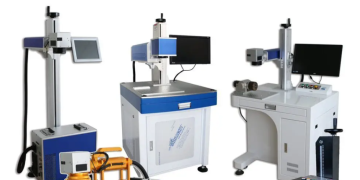If you would like to obtain a business loan, the lender may examine your credit score, the business plan, the financial reports and the tax returns.
The creditor can also review your bank statement, and the lender may evaluate the available balance, the monthly revenue and multiple expenses. Subsequently, the company could review the application, determine the value of the loan and estimate the interest rate.
According to Lantern by SoFi, “But before you start applying, consider the pros and cons of business loans. You need to nail down why you’re interested in getting one. Small business owners may need funding for a variety of reasons, many of them depending on which stage you’re in.”
Examining Your Credit Score
You can utilize a tool that will help you to estimate your credit score, and when you review the credit report, you may examine the available credit, the late payments, the average age of the accounts and helpful recommendations. If an entrepreneur has a low credit score, a lender might deny the application, or the company could substantially reduce the value of the loan. Before you submit an application, you may decrease the debt, increase the available credit, make multiple payments and monitor your credit score.
Providing an Inadequate Business Plan
The entrepreneur can offer a business plan that describes the marketing strategy, multiple types of products, the interests of the customers and the value of each purchase. The business plan may also examine trends that can affect the company in the future. Moreover, the entrepreneur could describe techniques that will increase revenue, enhance the reputation of the company, optimize the satisfaction of customers and improve the quality of many products.
Some companies may provide insufficient plans, and consequently, the lenders might deny the applications. If a lender does not approve an application, the company could modify the business plan, examine the preferences of many customers, design new products and evaluate the company’s profits. The entrepreneur may also create predictive forecasts that will estimate the revenue in the future. Subsequently, the company may submit a new application, or the entrepreneur could access a marketplace that will help the business to evaluate many lenders.
Reviewing the Budget and Examining the Expenses
The lender may evaluate a budget that describes the monthly expenses, the cash flow and the values of many orders. The entrepreneur could also estimate the costs of the marketing campaign, and the business owner may examine the return on investment. When a company is generating inadequate profits, the lender might not approve the application.
If an entrepreneur would like to generate additional revenue, the company could utilize strategies that will improve the marketing campaign, attract many customers and enhance brand awareness. The business may also unveil new products that will interest the customers, and the company can provide substantial discounts.
Submitting an Application and Receiving a Business Loan
Before you apply for a small business loan, you can access a marketplace that will help you to find many lenders, and you may evaluate the benefits of each loan, the duration of the contract, the monthly installments and helpful guidelines. Once you submit an application, you can also provide documents that describe the business plan, the company’s revenue, the budget and the credit score of the entrepreneur. Subsequently, the lender may review the application, approve the business loan and deposit the funds.





























































